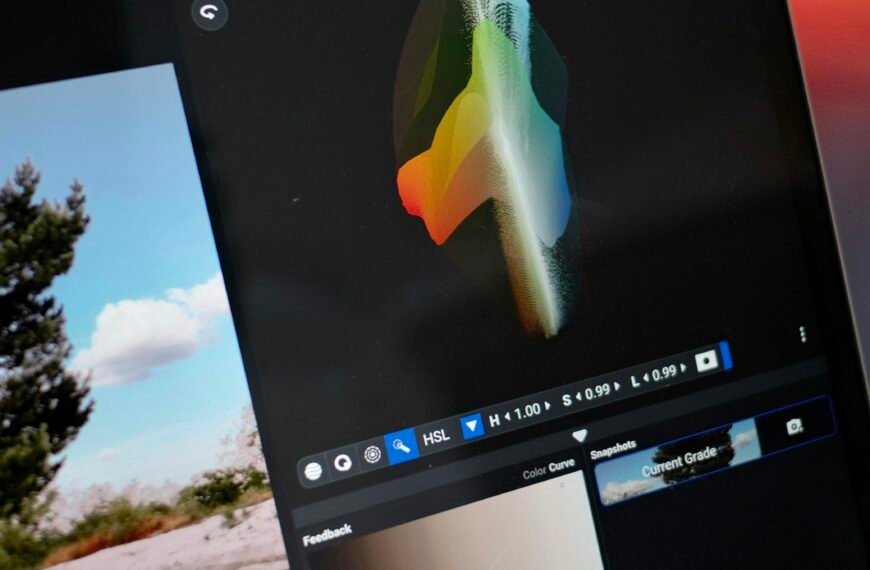Introduction to Phonedeck.net
Phonedeck.net was established with the intent of serving as a comprehensive resource for individuals interested in mobile technology. As mobile devices become integral to daily life, the significance of understanding their functionalities and advancements cannot be overstated. Phonedeck.net seeks to bridge the gap for developers and technology enthusiasts by providing accessible, informative content. The mission of the site is clear: to become a go-to platform where users can find the latest updates, tutorials, and discussions related to all aspects of mobile technology.
In our rapidly changing digital landscape, mobile technology is no longer a luxury but an essential aspect of living and working. It facilitates communication, information access, and myriad applications that enhance our daily lives. Phonedeck.net recognizes this pivotal evolution and aims to curate relevant content that aids users in navigating the interplay between mobile devices and their applications. The platform is designed to cater to a wide audience, from novice users seeking basic information to seasoned developers looking for advanced insights and tools.
As part of its commitment to providing high-quality information, Phonedeck.net covers a range of topics including mobile application development, device reviews, software updates, and technological trends. The site not only emphasizes the importance of mobile technology but also encourages community engagement through user-generated content and feedback. By fostering a collaborative environment, Phonedeck.net positions itself as not just a resource, but a community platform for those passionate about mobile innovation.
Understanding Mobile App Development
Mobile app development is a dynamic and multifaceted process that combines design, coding, and user experience to create functional applications for mobile devices. At the heart of this process, as discussed on phonedeck.net, lies the importance of selecting suitable platforms, such as iOS and Android, which dominate the mobile app landscape. Developers must understand the unique requirements and coding languages associated with each platform. For instance, iOS apps are often developed using Swift or Objective-C, while Android applications utilize Java or Kotlin.
A critical aspect of mobile app development is the design phase. Effective design is not merely about aesthetics; it focuses on user interface (UI) and user experience (UX), which are paramount in engaging users and ensuring seamless interactions with the app. Developers are encouraged to prioritize usability, aligning their design choices with the target audience’s preferences. Tools like Sketch, Figma, and Adobe XD, frequently referenced on phonedeck.net, are invaluable in prototyping and refining UI/UX before moving onto the development stage.
Furthermore, the development process often involves collaboration among various stakeholders, including designers, developers, and project managers. Agile methodologies have gained traction in the industry, allowing teams to iterate quickly based on user feedback and testing results. Testing should not be overlooked; it is crucial to identify and rectify issues that may impede user satisfaction or functionality. Automated and manual testing approaches are both employed to ensure that applications are robust and secure.
In summary, mobile app development hinges on a comprehensive understanding of design principles, coding conventions, and the development tools available. Resources like phonedeck.net serve as essential guides, offering insights and tutorials that empower developers to navigate this intricate field effectively.
Tools and Resources for Developers
Phonedeck.net serves as a comprehensive platform tailored for mobile app developers, offering a rich assortment of tools and resources that foster efficiency and creativity in development workflows. Among the standout features on Phonedeck.net are integrated development environments (IDEs) that facilitate the coding process. Leading IDEs such as Android Studio and Xcode are prominently featured, each providing powerful debugging tools and performance monitoring, essential for troubleshooting and optimization.
In addition to robust IDEs, Phonedeck.net presents an array of frameworks and libraries that significantly simplify the development process. Tools like React Native and Flutter are included, enabling developers to create cross-platform applications with a single codebase. This cross-compatibility is crucial for maximizing reach and minimizing time spent on redundant coding efforts. Furthermore, resources such as Firebase offer backend support and real-time databases that streamline app requirements.
Acknowledging the importance of continual learning in the tech industry, Phonedeck.net also curates essential tutorials and online courses designed to sharpen development skills. Resources from platforms like Udemy and Coursera are recommended, focusing specifically on mobile app development. These courses tackle fundamental programming concepts to advanced topics, allowing developers of all levels to enhance their capabilities. In addition, comprehensive documentation for various programming languages and frameworks is readily accessible, enabling developers to reference necessary information effortlessly.
Ultimately, Phonedeck.net is an invaluable resource hub that empowers mobile developers with the tools, frameworks, and educational materials needed to succeed. By integrating these resources into their workflow, developers can not only improve their productivity but also stay ahead in the rapidly evolving mobile technology landscape.
Event Technology and Its Impact
In the realm of modern event management, technology plays an increasingly pivotal role, fundamentally transforming how events are planned, executed, and experienced. Phonedeck.net serves as an invaluable resource for understanding these developments, offering insights into the diverse range of technologies that enhance event effectiveness. From sophisticated event planning software to advanced audiovisual solutions, the integration of technology streamlines coordination, making it easier for organizers to manage logistics and deliver seamless experiences.
One of the most significant advancements in this space is the rise of virtual and hybrid events. As the global landscape shifted during the past few years, many organizations turned to these formats to maintain engagement with their audiences. Phonedeck.net addresses the nuances of hosting such events by providing information on platforms that facilitate live streaming, audience interactions, and virtual networking. This shift not only broadens the reach of events but also allows for more diverse participation, as attendees can join from anywhere in the world.
Moreover, emerging technologies like augmented reality (AR) and virtual reality (VR) are set to enhance attendee engagement, offering immersive experiences that traditional formats cannot achieve. These innovations enable participants to interact with content and each other in more meaningful ways. Analytics tools, which are becoming more prevalent, further empower event organizers by delivering insights on attendee behavior and engagement levels. Data-driven decisions allow for refined strategies in future events, optimizing the overall experience.
In conclusion, Phonedeck.net provides a comprehensive view of how event technology continues to shape the landscape of event planning, execution, and engagement. As virtual and hybrid formats become staples in the industry, understanding these technologies is crucial for success, making the insights available on Phonedeck.net all the more valuable for event professionals. Exploring this resource can help individuals stay ahead of trends and optimize their event experiences through technology.
Successful App Launches: Case Studies
Phonedeck.net serves as a valuable repository for mobile technology enthusiasts and developers, showcasing various successful app launches. By examining these case studies, aspiring developers can glean insights into the methodologies and tactical approaches that led to these applications’ effectiveness and popularity. One notable case study highlighted on Phonedeck.net involves a fitness application that capitalized on user engagement through personalized features. Initially designed with basic functionalities, the app quickly adapted to feedback, introducing custom workout plans and incorporating social sharing features. This agile response not only enhanced user satisfaction but also facilitated a significant increase in downloads, showcasing the importance of responsiveness to user demands.
Another compelling case study features an educational app aimed at young learners. The team behind this application understood the significance of gamification in keeping users motivated. By integrating educational content with interactive game mechanics, the app managed to achieve substantial user retention rates. Despite facing initial hurdles related to content delivery and age-appropriateness, the developers leveraged insights from initial users to refine their offering significantly. This iterative process is a testament to the need for continuous improvement and user-centric design, reinforcing themes often discussed on Phonedeck.net.
Moreover, a social networking application explored on the platform illustrates the importance of niche market identification. The creators targeted a specific demographic and crafted tailored features that resonated with their audience. However, they encountered challenges regarding user privacy and data management, prompting them to establish robust safeguards that ultimately enhanced trust with their user base. These case studies provide aspiring developers with practical knowledge, emphasizing the importance of strategic planning, user feedback, and adaptability in launching a successful app. With comprehensive analyses, Phonedeck.net remains an essential go-to resource for anyone interested in navigating the mobile technology landscape effectively.
The Future of Mobile Technology
The mobile technology landscape is rapidly evolving, driven by advancements in various domains such as artificial intelligence (AI), 5G connectivity, and the Internet of Things (IoT). These developments are transforming the way we interact with our devices and, ultimately, with one another. As analyzed in the extensive resources available on phonedeck.net, several trends are shaping the future of mobile technology and pushing the boundaries of innovation.
One of the most significant advancements is the rollout of 5G networks, which promise to enhance mobile connectivity at unprecedented speeds. This shift towards ultra-reliable low-latency communication not only improves streaming quality but also enables a more connected environment where numerous devices can interact seamlessly. The implications for app development are profound, leading to new possibilities for real-time applications and services that were previously unfeasible. Developers will need to consider how this enhanced connectivity can improve user experiences and enable new functionalities.
Artificial intelligence continues to play a pivotal role in refining mobile applications. From predictive text features to personalized content recommendations, AI is being increasingly integrated into app design. As seen on phonedeck.net, machine learning algorithms are capable of analyzing user behavior, allowing apps to adapt and evolve based on individual preferences. This creates a dynamic environment where user engagement and satisfaction can be significantly enhanced, raising essential questions about privacy and data security.
The convergence of these technologies with IoT is particularly noteworthy. The growing number of connected devices means that mobile applications will need to be designed with interoperability in mind. As the IoT ecosystem expands, app developers face the challenge of ensuring seamless communication across various platforms and devices, paving the way for innovative solutions that enhance everyday living. Will future applications prioritize efficiency and connectivity, or will they focus on user privacy and security? These are critical considerations for developers moving forward.
Community and Collaboration at Phonedeck.net
Phonedeck.net plays an integral role in cultivating a rich community environment that thrives on collaboration among mobile technology enthusiasts. The platform serves as a vibrant hub where developers, technologists, and users converge to share knowledge, experiences, and innovative ideas. By leveraging robust forums and discussion boards, Phonedeck.net encourages users to engage in meaningful conversations that can lead to new insights and solutions for common challenges in mobile technology.
The forums at Phonedeck.net provide users with opportunities to pose questions, share code snippets, and discuss best practices in developing mobile applications. This kind of collaborative engagement is not just beneficial for individual developers; it fosters an atmosphere of collective learning and advancement. As users exchange tutorials and resources, they contribute to a growing repository of information that can aid both newcomers and seasoned professionals seeking to enhance their skills.
Phonedeck.net also places a strong emphasis on collaborative projects that harness the synergy of diverse talent. By connecting developers from various backgrounds and skill levels, the platform facilitates the creation of innovative applications and tools that might not be possible in isolation. Such collaborative efforts not only enhance technical skills but also encourage networking and the formation of professional relationships that can last well beyond the initial project.
The sense of community at Phonedeck.net extends beyond mere technical discussions. Users share their successes and setbacks, creating an environment where experiences can be openly discussed. This sharing of knowledge is crucial in promoting a culture of mentorship, where more experienced developers can guide novices through the complex landscape of mobile technology. By fostering such collaboration and interaction, Phonedeck.net stands out as a vital resource in the ever-evolving tech community.
Tutorials and Learning Opportunities
Phonedeck.net serves as an invaluable resource for individuals aspiring to enhance their skills in mobile app development and event technology. With a variety of tutorials tailored to different skill levels, the platform caters to both beginners and advanced users alike. The comprehensive learning paths not only cover fundamental concepts but also delve into more sophisticated techniques essential for mastering mobile technologies.
The tutorials available on Phonedeck.net are structured to facilitate progressive learning. For novices, introductory courses provide a solid foundation in programming languages commonly used in mobile app development, such as Java and Swift. These resources introduce essential coding concepts and frameworks while simultaneously integrating practical examples and interactive quizzes to reinforce learning. As users gain confidence, they can transition to intermediate and advanced tutorials that explore topics like API integrations, user interface design, and backend development.
Furthermore, Phonedeck.net offers specialized content focused on event technology, a crucial area in today’s digital landscape. Users can learn about utilizing mobile applications for event management, enhancing attendee engagement through technology, and leveraging data analytics to optimize event experiences. This aspect of the platform aligns with current industry trends, equipping users with the skills needed to succeed in organized event settings.
To promote ongoing education, Phonedeck.net regularly updates its repository of tutorials to reflect the latest developments in the field. This ensures that learners have access to cutting-edge information and techniques, which is vital in the fast-paced world of technology. By offering a diverse range of learning opportunities, Phonedeck.net not only supports individual skill enhancement but also fosters a community of tech enthusiasts committed to lifelong learning.
Conclusion: Your Journey with Phonedeck.net
In conclusion, Phonedeck.net stands as a pivotal resource for individuals engaged in the mobile technology sector. The website offers an extensive array of tools, insights, and community support aimed at enhancing the experiences of mobile app developers and event technology enthusiasts alike. From tutorials on app creation to insights on the latest trends in mobile technology, Phonedeck.net serves as a comprehensive guide to navigating this dynamic field.
As technology continues to evolve, staying updated with the latest resources is essential. Phonedeck.net consistently provides valuable information that can help users adapt to advancements and optimize their projects. The collaborative spirit fostered by the Phonedeck community encourages users to share knowledge, ask questions, and learn from one another, further enriching their experience. This supportive network can be particularly beneficial for newcomers seeking guidance in mobile app development and technology solutions.
Moreover, the wide-ranging content available on Phonedeck.net, including blogs, forums, and webinars, empowers users to delve deeper into specific areas of interest, honing their skills and expanding their understanding of mobile technologies. Whether you are developing a new application or looking to enhance your event technology strategies, Phonedeck.net equips you with the necessary resources to succeed. As you embark on your journey through mobile technology, leveraging the insights and support available at Phonedeck.net will be instrumental in achieving your goals.
Thus, we encourage you to explore Phonedeck.net and fully engage with the community it hosts. Your journey in mobile technology awaits, and the resources at your fingertips are sure to enhance your endeavors significantly.

We publish content to inspire and motivate the new generation.














